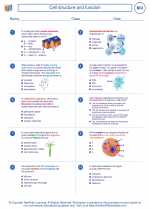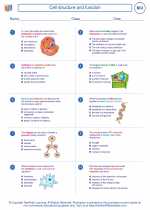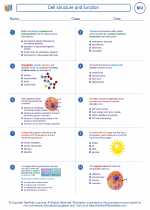Photon
A photon is a basic unit of light and is the smallest possible amount of light. It is a type of elementary particle, the quantum of the electromagnetic field including electromagnetic radiation such as light. Photons are massless, electrically neutral, and travel at the speed of light in a vacuum.
Characteristics of Photons
- Energy: Photons have energy proportional to their frequency, as described by the equation E = hf, where E is the energy, h is Planck's constant, and f is the frequency.
- Wave-Particle Duality: Photons exhibit both wave-like and particle-like properties, known as wave-particle duality. This means they can behave as both waves and particles.
- Quantization: Photons are quantized, meaning they can only exist in discrete energy levels, as opposed to a continuous spectrum of energy.
- Interaction with Matter: Photons can be absorbed or emitted by matter, leading to phenomena such as the photoelectric effect and the emission of light by atoms.
Applications of Photons
Photons have numerous applications in various fields, including:
- Communications technology, such as fiber optics
- Medical imaging, including X-rays and MRI
- Photovoltaic cells for converting light energy into electricity
- Laser technology for various industrial, medical, and scientific purposes
Study Guide
When studying photons, it's important to understand their characteristics, behavior, and applications. Here are some key points to focus on:
- What is a photon and what are its fundamental properties?
- How do photons relate to the electromagnetic spectrum and the concept of quantization?
- Explore the wave-particle duality of photons and their behavior in different experimental setups.
- Investigate the applications of photons in everyday technology and scientific research.
- Consider the historical and theoretical development of the concept of photons in the context of quantum mechanics.
By mastering these aspects of photons, you will gain a comprehensive understanding of this fundamental unit of light and its significance in the world of physics and technology.
[Photon] Related Worksheets and Study Guides:
.◂Biology Worksheets and Study Guides High School. Cell structure and function
Worksheet/Answer key Cell structure and function
Cell structure and function  Worksheet/Answer key
Worksheet/Answer key Cell structure and function
Cell structure and function  Worksheet/Answer key
Worksheet/Answer key Cell structure and function
Cell structure and function  Vocabulary/Answer key
Vocabulary/Answer key Cell structure and function
Cell structure and function  Vocabulary/Answer key
Vocabulary/Answer key Cell structure and function
Cell structure and function  Vocabulary/Answer key
Vocabulary/Answer key Cell structure and function
Cell structure and function  Vocabulary/Answer key
Vocabulary/Answer key Cell structure and function
Cell structure and function  Vocabulary/Answer key
Vocabulary/Answer key Cell structure and function
Cell structure and function 

 Worksheet/Answer key
Worksheet/Answer key
 Worksheet/Answer key
Worksheet/Answer key
 Vocabulary/Answer key
Vocabulary/Answer key
 Vocabulary/Answer key
Vocabulary/Answer key
 Vocabulary/Answer key
Vocabulary/Answer key
 Vocabulary/Answer key
Vocabulary/Answer key
 Vocabulary/Answer key
Vocabulary/Answer key

The resources above cover the following skills:
BIOLOGY
From Molecules to Organisms: Structures and Processes
Obtain, evaluate, and communicate information to describe the function and diversity of organelles and structures in various types of cells (e.g., muscle cells having a large amount of mitochondria, plasmids in bacteria, chloroplasts in plant cells).